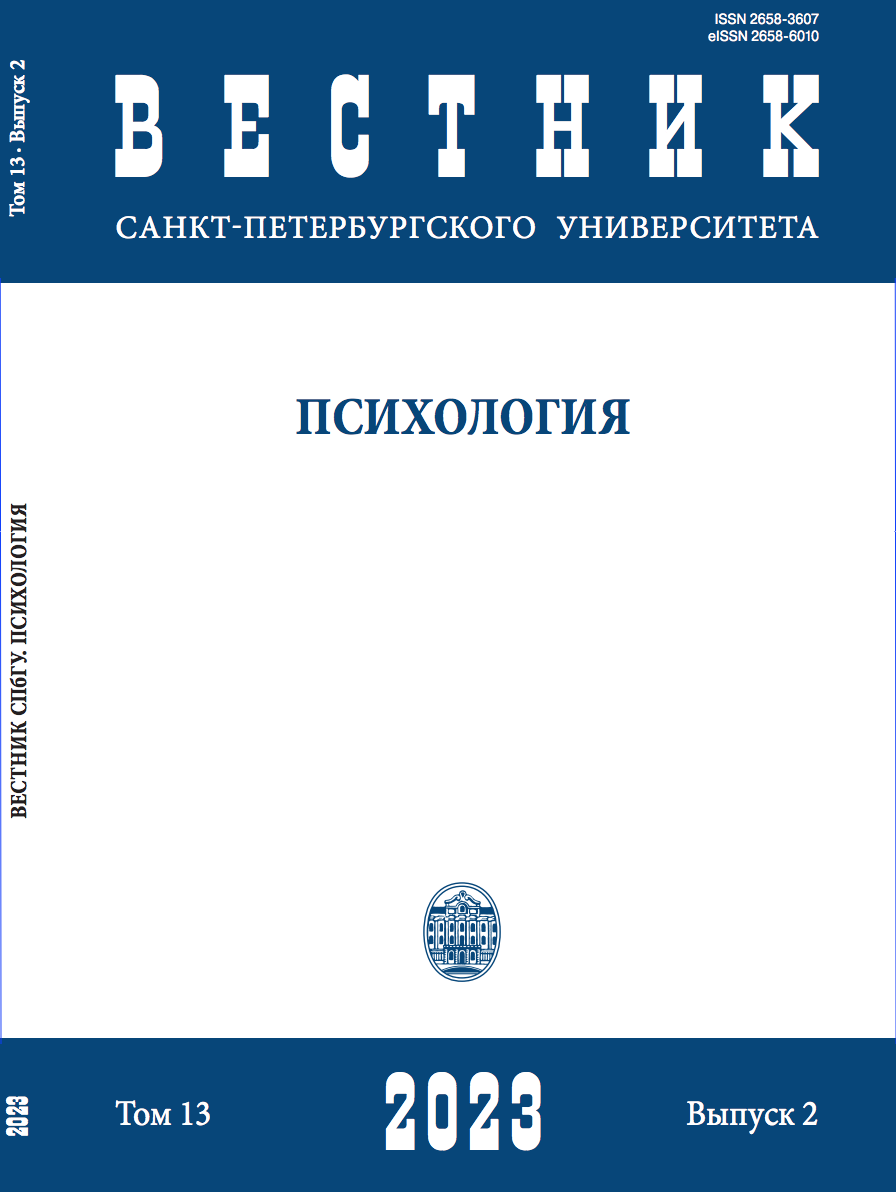Стереотип-зависимая беспомощность: постановка проблемы
DOI:
https://doi.org/10.21638/spbu16.2023.201Аннотация
Работа посвящена анализу феноменов, связанных с периодом старения: стереотипов о старении и выученной беспомощности. Современное общество несколько десятилетий стоит перед проблемой улучшения качества жизни пожилых людей в условиях растущей продолжительности жизни. В качестве одного из наиболее прогрессивных подходов к улучшению качества жизни рассматривается формирование стратегий старения на более ранних этапах. Вместе с тем использование этих стратегий опосредовано как негативными, так и позитивными факторами. Наш анализ показывает, что на стыке двух специфических психологических явлений — стереотипов о старении и выученной беспомощности, может находиться еще один малоизученный механизм — стереотип-зависимая беспомощность. Наш анализ показал, что стереотипы о старении широко распространены, имеют разнообразные эффекты, в том числе положительные, однако сила влияния негативных эффектов в несколько раз выше, чем позитивных. В свою очередь, выученная беспомощность представляет собой механизм, когда, основываясь на своем негативном опыте, человек прекращает попытки достичь какого-либо результата. Мы предположили, что основой для такой беспомощности может выступать не только непосредственный опыт, приобретенный человеком, но и усвоенные им стереотипы. Вводимое нами понятие имеет высокий потенциал как теоретического, так и практического применения. Мы полагаем, что снижение активности, вызываемое стереотип-зависимой беспомощностью, может вызывать ускоренные процессы сворачивания психических функций в период старения. Следовательно, изучение механизмов стереотип-зависимой беспомощности позволит, с одной стороны, расширить понимание механизмов старения, в первую очередь оценить этот механизм как фактор риска продуктивного старения, с другой стороны, понимание психологических предикторов стереотип-зависимой беспомощности поможет в будущем создать практические техники для снижения рисков его проявления.
Ключевые слова:
старение, эффективное старение, стереотип-зависимая беспомощность, эйджизм, выученная беспомощность
Скачивания
Библиографические ссылки
References
Загрузки
Опубликован
Как цитировать
Выпуск
Раздел
Лицензия
Статьи журнала «Вестник Санкт-Петербургского университета. Психология» находятся в открытом доступе и распространяются в соответствии с условиями Лицензионного Договора с Санкт-Петербургским государственным университетом, который бесплатно предоставляет авторам неограниченное распространение и самостоятельное архивирование.




